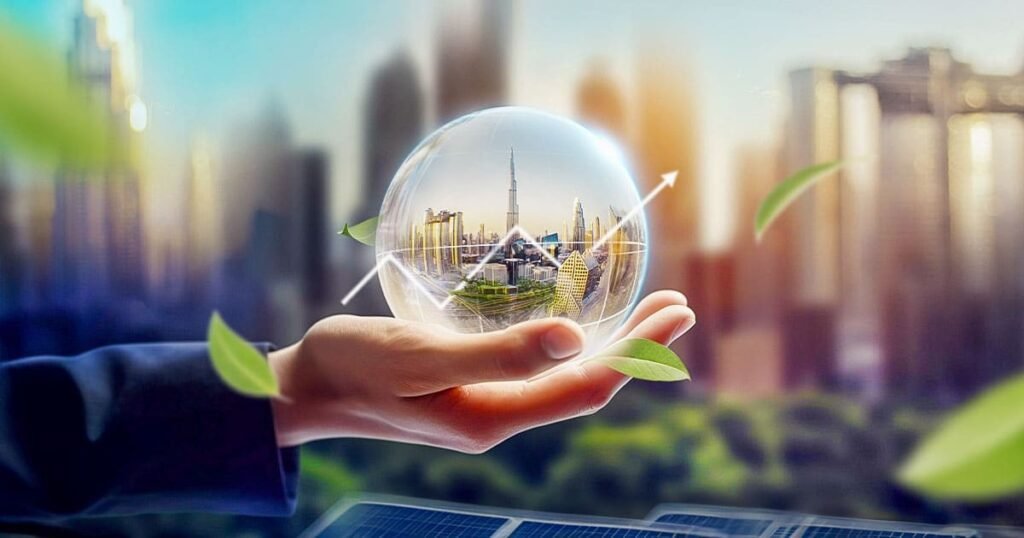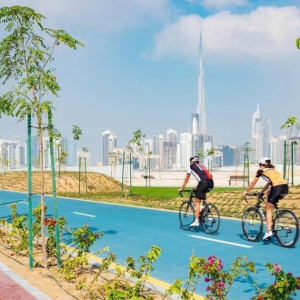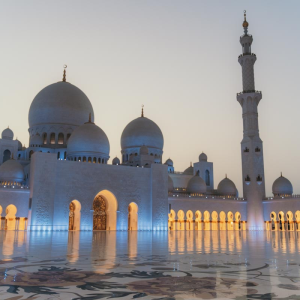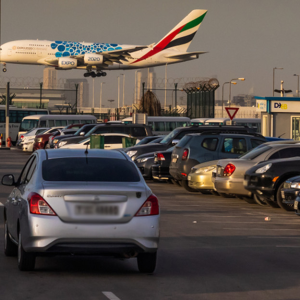The United Arab Emirates (UAE) is making rapid strides in sustainability and environmental, social, and governance (ESG) compliance. With ambitious green initiatives and policies, the UAE is setting a benchmark for sustainable development in the Middle East and beyond. From clean energy projects to eco-friendly urban planning, the nation is shaping a greener and more responsible future.
Commitment to Net-Zero by 2050

One of the UAE’s most significant sustainability commitments is its Net-Zero 2050 Strategic Initiative. This landmark pledge makes the UAE the first Gulf country to aim for net-zero carbon emissions by 2050. The government has allocated over $160 billion to support clean energy projects and sustainable infrastructure, aiming to transition from an oil-based economy to a greener one.
Expanding Renewable Energy Projects

The UAE is home to some of the world’s largest renewable energy projects. It has invested heavily in solar and wind energy to reduce dependence on fossil fuels. Key projects include:

- Mohammed bin Rashid Al Maktoum Solar Park: The world’s largest single-site solar park, targeting a capacity of 5,000 MW by 2030.
- Barakah Nuclear Power Plant: The first of its kind in the Arab world, this plant is expected to supply up to 25% of the UAE’s electricity needs with zero carbon emissions.
- Masdar City: A sustainable urban development that runs on renewable energy and serves as a global hub for green innovation.
Green Building and Smart Cities
Sustainable urban planning is another major focus for the UAE. The government has introduced green building regulations and smart city initiatives to minimize environmental impact. Cities like Dubai and Abu Dhabi are developing eco-friendly infrastructure, including:
- Dubai’s Sustainable City: A self-sufficient community with solar-powered homes, electric transport, and 100% recycling of water and waste.
- Abu Dhabi’s Estidama Program: A rating system that ensures new buildings follow sustainability guidelines, reducing energy and water consumption.
Corporate ESG Compliance: Stricter Regulations
The UAE is also enforcing stricter ESG regulations for businesses. Companies are now required to disclose their sustainability efforts, carbon footprint, and social responsibility programs. The Securities and Commodities Authority (SCA) has made ESG reporting mandatory for all publicly listed companies, encouraging transparency and accountability.

Additionally, the UAE’s financial sector is aligning with green finance trends. The Abu Dhabi Global Market (ADGM) and Dubai International Financial Centre (DIFC) are promoting sustainable investment funds, ensuring businesses prioritize ethical and environmentally friendly practices.
Tackling Climate Change and Carbon Emissions
Climate action remains a top priority for the UAE. The country is adopting carbon capture technologies and investing in research to mitigate emissions. Initiatives include:
- Al Reyadah Carbon Capture Project: The region’s first industrial-scale carbon capture and storage facility, reducing emissions from the steel and oil industries.
- One Million Trees Initiative: A nationwide afforestation program aimed at increasing green cover and absorbing carbon dioxide.
Water Conservation and Waste Management
Given the UAE’s desert climate, water conservation is critical. The government has implemented strategies to reduce water wastage and promote sustainable desalination techniques. Key measures include:
- Treated wastewater reuse: Used for irrigation in agriculture and landscaping.
- AI-powered water management systems: Enhancing efficiency and reducing leaks.
- Zero waste to landfill targets: Encouraging recycling and waste-to-energy conversion projects.
Hosting COP28: UAE’s Global Sustainability Role
The UAE is hosting COP28, the UN Climate Change Conference, in 2023. This reinforces its leadership in climate action and its commitment to global environmental efforts. The event will bring world leaders together to discuss policies for tackling climate change, reinforcing the UAE’s position as a sustainability pioneer.
Conclusion: A Green Future for the UAE
The UAE’s initiatives towards sustainable development and ESG compliance are shaping a future where economic growth and environmental responsibility go hand in hand. With large-scale investments in renewable energy, smart urban planning, and strict ESG regulations, the country is setting an example for the world. As the UAE continues its journey towards net-zero emissions by 2050, it remains a leader in the global sustainability movement.
Also read: UAE’s Bold Initiatives to Empower Women in STEM: A Game Changer












